Notre Dame Professor Siyuan Zhang wins CTSI grant
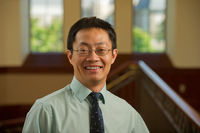
Siyuan Zhang, Nancy Dee Assistant Professor of Cancer Research, Assistant Professor of Biological Sciences and affiliated member of Harper Cancer Research Institute at the University of Notre Dame, recently won a grant from the Indiana Clinical and Translational Sciences Institute (CTSI). Awarded Pilot Funding for Research Use of Core Facilities, Zhang is planning on using his funding to learn more about brain metastasis in cancer patients. The award was designed to promote the use of technologies and knowledge made available by Indiana CTSI-designed cores available at partner institutions.
Tuberculosis Research Sheds Light on Disease-related Protein
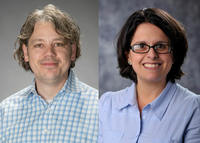
The WHO names Tuberculosis (TB) as one of the top 10 causes of death worldwide and over 95 percent of those deaths occur in low- and middle-income countries. To improve the global health community’s understanding of TB and provide information that could help treat it, Notre Dame researchers have developed a new strain of the bacteria along with a new method to better study this deadly disease.
Tuberculosis: The Disease of Antiquity

Jeff Schorey, a world-renowned expert with pioneering work on the role of exosomes in infectious diseases, has been studying mycobacterial disease for almost two decades.
Finalists named in hotly contested Shaheen 3MT® science qualifying round
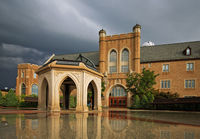
The College of Science Shaheen 3MT competition began with a big bang on Monday in Jordan Hall of Science. Julia Beck (Biochemistry), Elizabeth Loughran (Integrated Biomedical Sciences), and Stefan Freed (Biological Sciences) took the top three spots, and will go on to compete at the Shaheen 3MT® Final event on March 23.
Notre Dame biologist Cody Smith wins prestigious Sloan Research Fellowship
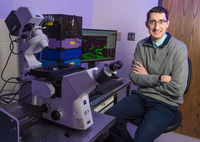
Cody J. Smith, the Elizabeth and Michael Gallagher Assistant Professor of Neural Development and Regeneration, has been selected as a 2017 recipient of the prestigious Sloan Research Fellowship.
How Wolves are Helping Nature Thrive
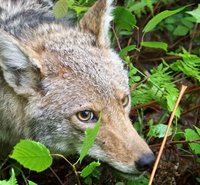
New Notre Dame research has shown that wolves living in Michigan’s Upper Peninsula are actually helping foxes, hares, and plants survive.
Senior John Huber awarded Gates Cambridge scholarship

This prestigious postgraduate scholarship program, which fully funds postgraduate study and research in any subject at the University of Cambridge, was established through a $210 million donation to the University of Cambridge from the Bill and Melinda Gates Foundation in 2000; this remains the largest single donation to a U.K. university.
Alex Perkins named Early Career Fellow by the Ecological Society of America
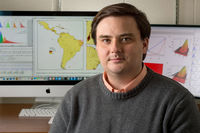
The University of Notre Dame’s Alex Perkins, Eck Family Assistant Professor, and member of the Department of Biological Sciences, the Department of Applied and Computational Mathematics and Statistics, the Eck Institute for Global Health, and the Environmental Change Initiative, was named a 2017 Early Career Fellow by the Ecological Society of America (ESA).
Zika: Where are we now?
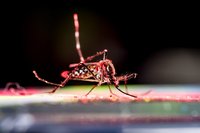
Professors in Notre Dame’s Department of Biological Sciences and members of the Eck Institute reflect on the outbreak, the challenges presented by the virus and the work yet to be done to help health professionals and key decision makers protect their citizens.
Notre Dame scientists study the past to predict climate change
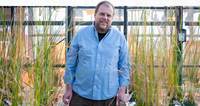
A chance meeting a decade ago in a graduate school hallway led paleoecologist Jason McLachlan to create a Jurassic Park-like wonder in Notre Dame’s greenhouse, where rows of salt marsh bulrushes have germinated from 100-year-old seeds.
Grad student will present new cancer findings at St. Jude Children’s Research Hospital
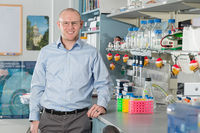
Biological sciences graduate student Joshua Mason has been selected to attend the 2017 National Graduate Student Symposium (NGSS) at St. Jude Children’s Research Hospital in Memphis, Tennessee. Selection in the NGSS is extraordinarily competitive as application is by invitation only. Over 1,500 students were invited to apply for the 2017 symposium of which only 42 students were selected to participate. Mason and the other selected participants will receive an all expenses paid trip to St. Jude this Spring where they will give a talk, present a poster, and meet with St. Jude scientists.
Research reveals a triple-drug regimen that could eliminate elephantiasis
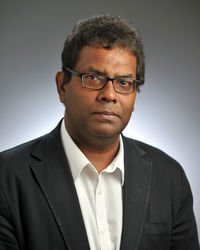
A collaborative modeling study among three research groups, including Edwin Michael’s laboratory in the Department of Biological Sciences, reveals that a triple-drug regimen could accelerate the elimination of lymphatic filariasis, a mosquito-borne parasitic disease also known as elephantiasis. The study, which shows that the regimen requires far fewer applications than current two-drug combinations, is also significant because it provides a unified scientific consensus on the subject for policymakers who sometimes face a confusing array of separate claims.
Researchers publish hypothesis to explain speciation in Rhagoletis flies
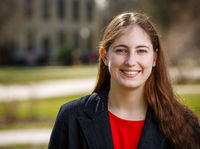
Research led by fifth-year graduate student Cheyenne Tait in the Biological Sciences laboratory of Jeffrey L. Feder at Notre Dame has identified structures on the antennae of Rhagoletis flies that could explain why the flies are on their way to diverging into two distinct species even though they are not geographically separated.